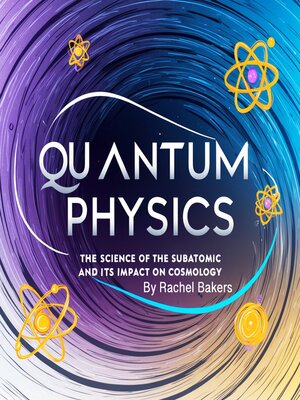Quantum Physics
audiobook (Unabridged) ∣ The Science of the Subatomic and Its Impact on Cosmology
By Rachel Bakers

Sign up to save your library
With an OverDrive account, you can save your favorite libraries for at-a-glance information about availability. Find out more about OverDrive accounts.
Find this title in Libby, the library reading app by OverDrive.



Search for a digital library with this title
Title found at these libraries:
| Library Name | Distance |
|---|---|
| Loading... |
This audiobook is narrated by a digital voice.
The story of quantum physics begins with a crisis in classical physics at the turn of the twentieth century, when several experimental observations refused to conform to the well-established laws of Newton and Maxwell that had successfully described the natural world for centuries. These anomalies would ultimately reveal that reality at its most fundamental level operates according to principles so strange and counterintuitive that they challenged the very foundations of scientific understanding and forced physicists to abandon their most cherished assumptions about the nature of physical reality.
The first crack in the edifice of classical physics appeared in 1900 when Max Planck attempted to solve the blackbody radiation problem, a puzzle that had confounded physicists for years. Classical theory predicted that a perfect blackbody radiator should emit infinite energy at high frequencies, a clearly impossible result known as the ultraviolet catastrophe. Planck discovered that he could resolve this paradox only by making a radical assumption: energy could not be emitted continuously but only in discrete packets, or quanta, with energy proportional to frequency through a new fundamental constant that would later bear his name.
Planck initially viewed his quantum hypothesis as a mathematical trick rather than a fundamental feature of nature, but Albert Einstein recognized its deeper significance in 1905 when he used the concept of energy quanta to explain the photoelectric effect. Einstein's work demonstrated that light itself comes in discrete packets, later called photons, and that the energy of these photons depends only on their frequency, not their intensity. This insight earned Einstein the Nobel Prize and established that the wave-particle duality was not merely a mathematical convenience but a fundamental aspect of electromagnetic radiation.







